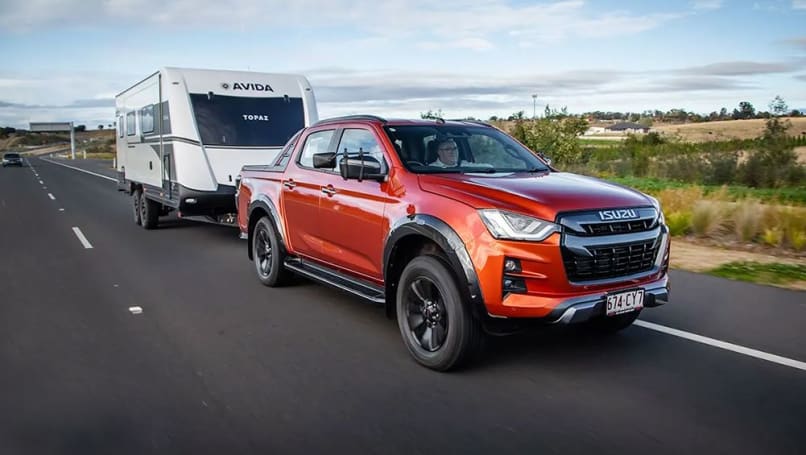
Are wheel spacers legal in Australia?
Are wheel spacers legal in Australia? No, wheel spacers are not legal in...
Browse over 9,000 car reviews

When will diesel cars be banned in Australia?
The answer is no time soon, at least on a national basis, but if you’re asking will diesel cars be banned, it seems inevitable. The future of diesel cars in Australia would best be described as limited and their phasing out inevitable because they cause pollution and this is making them increasingly unpopular.
The fact is, however, that diesel cars, utes and vans are everywhere in Australia and will continue to be so for some time. Diesel engines are popular because they are so fuel efficient and thus offer better driving range between refuelling stops. They also offer more torque and are thus better for towing or carrying heavy loads.
In the near term, however, the ACT has committed to banning the sale of new petrol and diesel cars in 2035 while the Committee for Sydney has announced plans to ban diesel cars in 2027. No other states or territories have committed to a timeline for banning diesel cars, yet, but they may soon announce similar plans as the entire country works towards reducing emissions from transport by 2050.
So why is diesel on the nose and why is diesel being phased out? The fact is that all cars with combustion engines contribute to air pollution and CO2 emissions, but diesel engines are undeniably the worst when it comes to pollution.
Diesel engines produce Nitrogen Oxide, the ugly and dangerous combination of Nitrogen Monoxide (NO) and Nitrogen Dioxide (NO2). But they also emit tiny soot called particles, known as Particulate Matter (PM). These are the reason so many vehicles in a city like London look like they’ve been baked in black dust.

Particulate Matter stays in the air for a long time and can activate cancer cells in the human body. The International Agency for Research on Cancer has tagged PM as part of the Group 1 carcinogens list. So, not great, then.
A recent report from the Climate Council insisted that petrol and diesel vehicles should be banned from sale by 2035 and Australian households should be encouraged to get rid of one of their family cars. The report also found Australia had the potential to halve its transport emissions by 2030.
The Climate Council partnered with the University of Technology Sydney to produce its Seize the Decade report, which suggested the actions, if taken, could cut pollution and deliver significant health benefits sooner than expected.

Even without bans, the popularity of diesel in Australia for motorists is falling fast. Back in 2006, just 2.6 per cent of passenger cars sold were diesel, compared to 21 per cent of SUVs, but those figures then grew as high as 8.0 per cent for passenger cars in 2011. In 2012, a whopping 39 per cent of SUVs sold in Australia used diesel.
In 2023, however, just over 4.0 per cent of new cars sold used diesel, while 21.6 per cent of SUV sales had diesel engines.
It’s important to point out diesel is still hugely popular with buyers of light commercial vehicles - utes and vans - accounting for more than 90 per cent of those vehicles in 2022. And that’s going to make any ban on diesel in Australia very difficult indeed.

In passenger cars, though, European makers, like Audi, BMW and Mercedes-Benz, that once promoted their diesel vehicles - which also used to be very popular in Europe - have been dropping them from their ranges. Even the very popular Toyota RAV4 dropped its diesel option in favour of a petrol-electric hybrid back in 2019.
So how would a ban, like the one in proposed in the ACT, work? It will not be a ban on buying or owning diesel vehicles, and you’d still be able to buy a second-hand one if you wished, because the ban would effect only the sale of new diesel cars (the ACT intends to ban the sale of new petrol-powered cars in the same year, which sounds even more radical, and slightly unlikely, at least in that time frame).
The ACT is aiming for up to 90 per cent of new cars sold in the ACT to be “green” by 2030, which will make the 2035 deadline more plausible.

While Canberra might seem like a bold outlier in Australian terms, it is merely following the lead of the vast European Union, which has passed a law to effectively ban the sale of new diesel and petrol vehicles across the EU by 2035.
It’s a law that has been controversial and has faced pushback from some member countries, particularly those that make a lot of cars, like Germany.
If the EU does achieve its total ban of new diesel cars, this will obviously reduce the number of options Australians will have to buy when it comes to importing diesel vehicles, because obviously we don’t make any locally.

While the United States has yet to set a date to ban of diesel cars, the very green state of California has passed laws banning sale of all new 'gas' powered cars after 2035.
Some global cities, like Paris, Mexico City, Madrid and Athens have become so concerned about air pollution that they introduced laws for Low Emission Zones, which make it illegal to drive diesel vehicles, even old ones, into the centre of cities.
In Paris, diesel vehicles over 14 years old will not be allowed to drive in greater Paris between 8am and 8pm by January 1, 2025, and people who attempt to do so will be heavily fined.
Comments